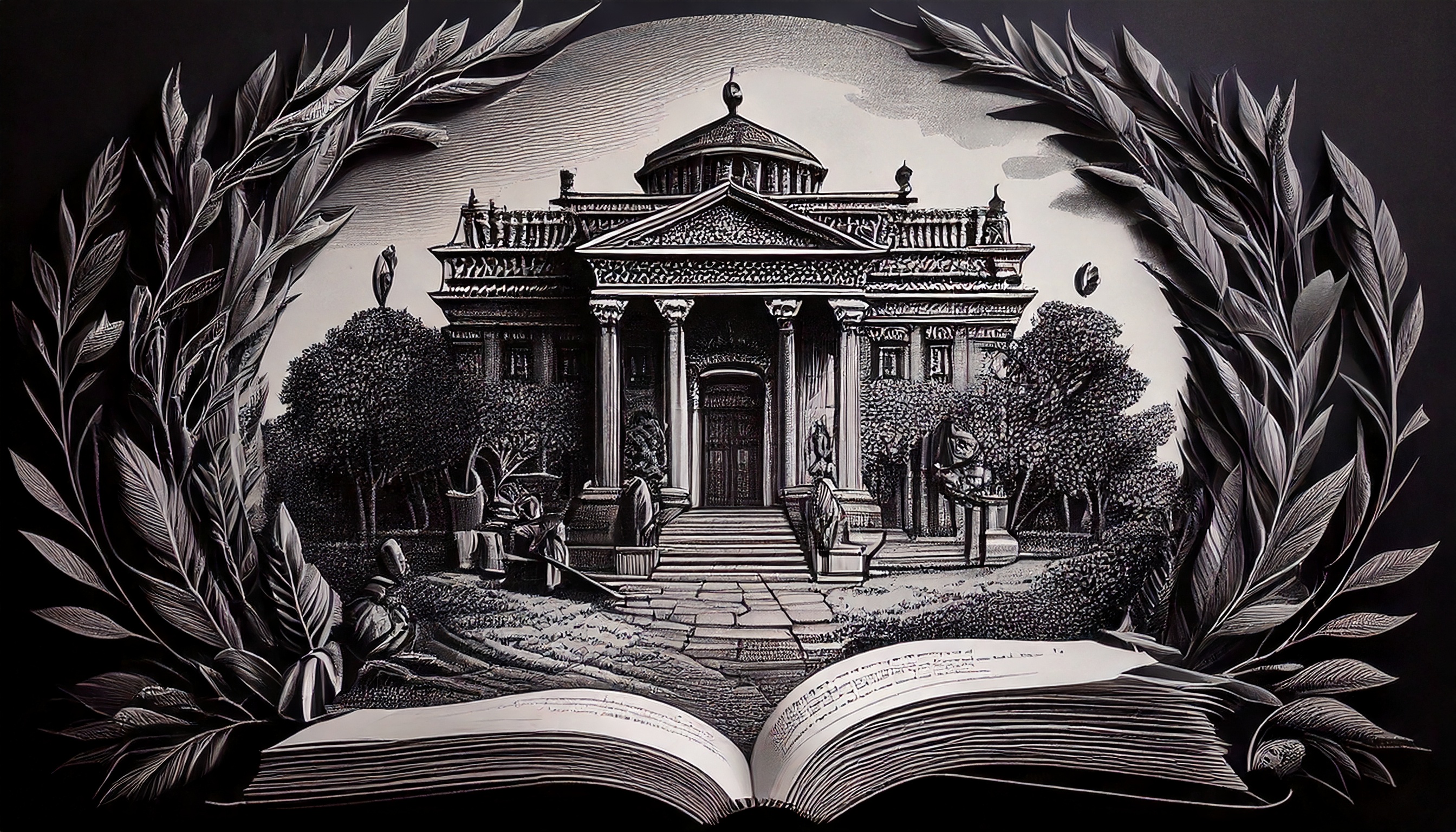In most cases, yes, a trust does avoid probate. Most trusts are designed to make a smooth transition plan for your assets to pass to your heirs without probate delays.
Estate planning is simply the process of figuring out what will happen to your money and property when you die. Of course, a key part of this is the importance of trusts and probate. This article will detail how a trust can avoid probate and why you might wish to use this type of tool in your estate plan.
Probate Overview: A Basic Understanding
Probate is the court process for administering a deceased person's estate. And by that we mean, validating the will, paying debts and distributing assets to beneficiaries. One of the most important things to understand for anyone beginning their estate planning journey is what probate actually is and its purpose for settling your estate.

What is Probate?
Probate is a judicially supervised process for settling an estate — i.e., seeing a will is genuine and fulfilling the directions of the stated will. Often, people die without a will (also known as “intestate”). In this case, each state has its laws regulating how the deceased's estate will be distributed amongst heirs.
Probate is a lengthy and complicated process that can take anywhere from several months to even years, with the exact time depending mainly on how intricate the estate is and if any disputes arise.

All that matters here is that if you fail to draft a will, your beneficiaries might have to wait a long time to get what you want to give them. Even with a properly drafted will, your estate will have to go through probate. What you really want is to find a way to make sure you have a system, like a trust, that can avoid the probate process.
The Probate Process Explained
Probate typically starts with the filing of the will with the probate court. The court will then name an executor to handle the estate. This individual is tasked with collecting assets, informing creditors, paying off debts and then distributing the rest of the estate to beneficiaries.
In fact, executors are required to maintain a detailed record of every transaction and may be called upon by the court or any beneficiary to account for what they have done at each step so that everyone can see what has happened out in the open.
In this probate period, the court checks and upholds that all things are done in proper conformity with the laws of the state. If there are any disputes over the validity of the will between creditors, heirs or beneficiaries, this could lead to litigation. That means costly time delays in court.
Moreover, the estate may end up facing extra charges such as court charges, lawyer costs and executor payments, greatly reducing the estate's total value. Individuals should keep these in mind when they are estate planning, as taking action beforehand may reduce some of the issues and costs associated with probate. But that’s what a trust offers, avoidance of the whole probate circus.
Definition Of Trusts For Estate Planning
Trusts are essential tools for estate planning; Trusts are incredibly powerful ways to control your own assets while you’re still alive, and then make sure your wishes are fulfilled after you pass away. A trust allows an individual, the grantor, to transfer assets into a trust. Those assets are then managed by a trustee on behalf of the beneficiaries.
Defining a Trust
So, what is a trust anyways? A trust is a legal entity that holds and controls your assets. Trusts can be revocable, meaning the grantor can change their terms or revoke them altogether. Trusts can also be irrevocable, where the grantor gives up control of those assets once in trust and cannot make changes after formation.
This distinction matters a lot because it changes how your assets are treated for tax and estate planning purposes. You’ll also want to to decide between revocable or irrevocable trusts, based on if you’re concerned about protecting your assets from creditors and lawsuits. For individuals with a net worth over $10 million, it’s usually best to choose an irrevocable trust.
In any case, either trust allows you to avoid the probate process and keep the affairs of your estate private.
Different Types of Trusts

Some common ones include:
Revocable Living Trust:
Enables the grantor to maintain authority over the assets and make changes to trust as required. But you lose the ability to protect your assets from high tax bills or greedy creditors. Not the best option for those with large estates.
Irrevocable Trust:
Because the grantor cannot change or terminate these assets, there are potential estate tax advantages to placing them in this trust. You also get excellent shielding from creditors and lawsuits. Once assets are placed in an irrevocable trust, not only do they avoid probate, they no longer belong to you, lowering your tax bill.
Testamentary Trust:
Takes effect at the death of the grantor. It’s like a trust, but it only activates once you’ve passed away. Similar in nature to a will, but you avoid the probate delays for passing on your assets.
Special Needs Trust:
For beneficiaries with disabilities to protect their eligibility for government benefits.
It’s important to make so that you create the right trust to meet your individual requirements and targets. A revocable living trust, for example, can help sidestep the cumbersome and expensive probate process that could hold up the passing of assets to beneficiaries.
An irrevocable trust also avoids probate, but you get that added tax benefit and protection from creditors or lawsuits.
How Are Trusts Used to Avoid Probate?
Estate planning with trusts is a common way to evade the onerous, time-consuming and expensive probate process. While a trust is, in legal terms, its own entity, upon the grantor's death, this legal tool also generally protects assets held within a trust from probate.
Does a Trust Go Through Probate?
No, a trust does not go through probate. The probate system is designed for wills, but trusts avoid the probate process to pass along assets to the beneficiaries without delay.
When the grantor creates a revocable living trust and transfers assets to that trust, those assets are not part of the estate at death. In simple terms, this means the trustee can directly pay out the estate’s assets to beneficiaries rather than go through probate. Your assets are directly distributed to the intended party as laid out by the trust. No court involvement. No delays. No fuss.
The fact that these accounts can avoid probate has real benefits: the process is simpler, and legal fees are almost always lower. Some assets may be able to be distributed quickly after death, which could help support the survivors.
In addition, the confidentiality provided by trusts is another great reason to look at this estate planning method. But unlike the public records generated from probate proceedings, a trust is confidential and keeps your family's financial matters out of the public.
A Comparative Analysis of Trusts and Probate
Probate vs Trust: The biggest difference is the amount of court involvement in probate. The distribution is overseen by the court, whereas a trust allows for private management and support without needing court supervision. This can make the settling of estates run a little smoother, and be less likely to end up in familial disputes.
Trusts also may have the distinct advantage of enabling a grantor to determine exactly how and when beneficiaries can receive their inheritance. This feature can be used to control how the beneficiary deploys the assets.
For example, you might not want your beneficiaries to receive any money until after they’ve graduated, married, or reached a certain age. Probate can’t make that kind of distinction. Such provisions can also protect the beneficiaries from being the victim of fraud or spending the funds ineffectively, especially if they are minors or do not know how to handle financial affairs.
The Advantages of a Trust vs Avoiding Probate
Trusts can accomplish the saving of probate costs as well as many other advantages to enable better estate management.
Accelerate The Estate Settlement Process
Trusts can speed up the estate settlement process significantly because the assets are not part of probate. Beneficiaries can gain access to their inheritance faster.
You might need your surviving heirs to get their money faster, especially during a traumatic time after a death. In some cases, the grantor's assets can be distributed almost immediately after death, letting beneficiaries use these funds for immediate expenses such as payments of debt or funeral costs. No one has to wait for probate delays and pending payments.

Private Estate Distribution
For some, the most important aspect of a trust is that it offers considerable privacy. Unlike probate and wills, trusts are private documents and their terms will not appear in the public record.
The protection of such a provision keeps the grantor's intentions and shields the beneficiaries' financial specifics out of the public eye. Moreover, privacy can reduce potential disputes among family members or other interested parties as no one can question the disposition of trust assets.
Tax Benefits.
Probate avoidance is the reason that many set up trusts, but it can also provide tax benefits as well. Some irrevocable trusts allow the grantor to take assets out of their estate and therefore reduce their value subject to estate taxes.

In addition, income from assets held in a trust might be taxed at a lower rate and provide other financial advantages. For example, you could create what’s known as a charitable remainder trust. This provides your beneficiaries with income but also allows charitable contributions that reduce taxable income. This is a double bonus of supporting a good cause you care about while also optimizing your tax-deductible obligations.
Common Myths About Trusts and Probate
While the benefits of trusts are obvious, we still see some myths about their usefulness in estate planning. Let’s air those myths now and clear them up.
Myths About Trusts
A common misconception about trusts is that they only serve as an essential asset for the rich. While it’s true that wealthy people like to use trusts, it’s not exclusively for them.
In practice, trusts are useful to people at different income levels because they enable better control over asset distribution and eliminate delays in releasing funds. That means that even if you have an estate valued at less than $100K, your trust still avoids probate and makes sure your estate gets into your loved one’s hands quicker.
More so, several people think that setting up a trust comes with highly technical legal maneuvers. Not true. Most simple trusts can be set up through the help of an estate planning attorney. For example, an irrevocable trust can be established with relatively little red tape which lets you safeguard your assets while facilitating a painless transition of assets to your beneficiaries without probate.
Dispelling Probate Myths
A common misconception is also that probate is lengthy and cumbersome. Compared to a trust, which avoids probate delays, this is certainly true. But a lot of delays depend on the complexity of your estate, if there are any disputes, and which jurisdiction you live in. Even a short probate is a long delay compared to what a trust offers.
But the existence of simplified probate does not diminish the benefits of using a trust to potentially avoid it altogether. As we touched on before, in some states expedited probate can be available for small estates but this is not a universal option and even so, it may still cause delays and extra expense.

Also, most people think that all assets have to go through probate but that is not the case. Some assets, such as life insurance policies, retirement accounts, and property held in joint tenancy pass directly to beneficiaries without probate. That can really speed up the distribution, lightening some of those probate burdens.
Trusts to Avoid Probate: Our Final Thoughts
You can’t plan for everything. But you can be prepared for it. If you want to create a system that seamlessly lets you transfer your assets to your loved ones, a trust is your best bet. Even better is to create an irrevocable trust that safely protects your assets while you’re alive and avoids probate after you pass away.
But is an irrevocable trust the best choice for you? If you have a large estate valued at over $10 million, then it’s pretty much your safest option. But don’t simply think about it. Take action today. Fill in the form below so we can assess your situation and give you expert guidance about how to create a trust that avoids probate and protects your future from whatever happens.










